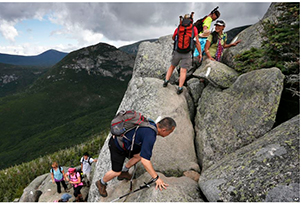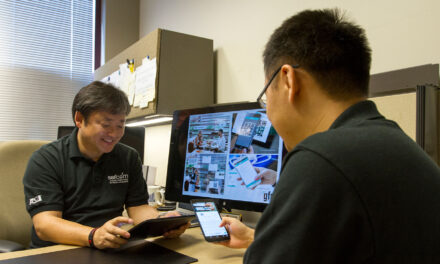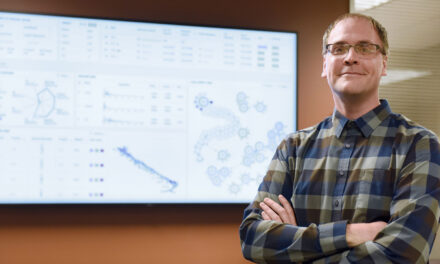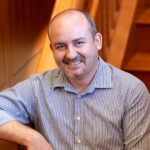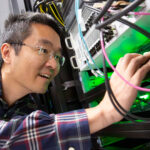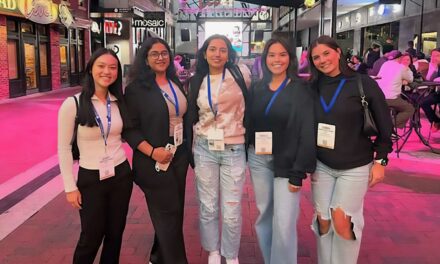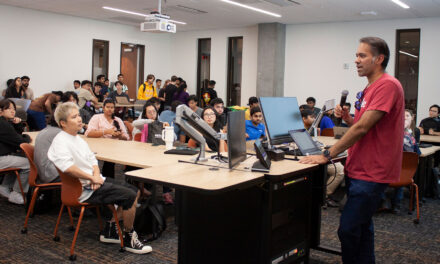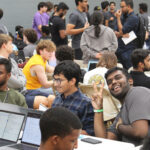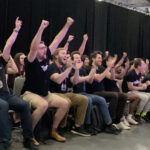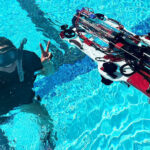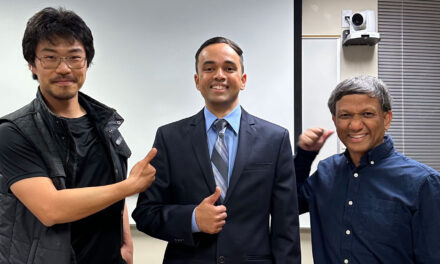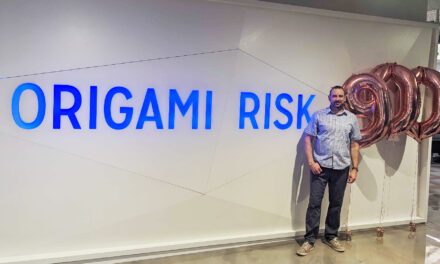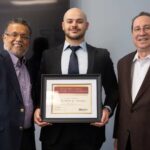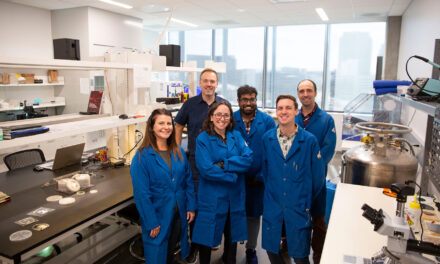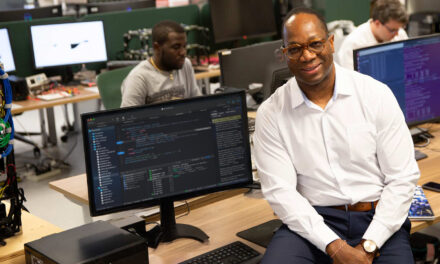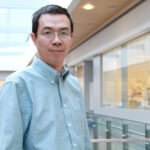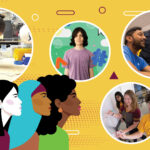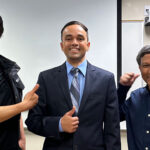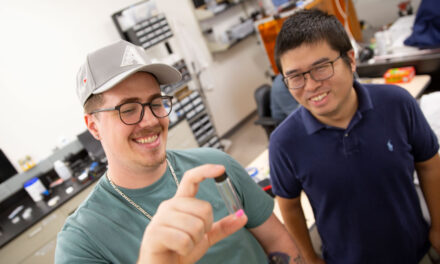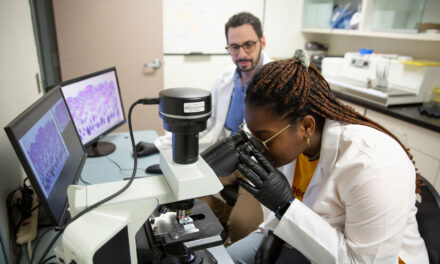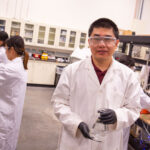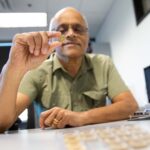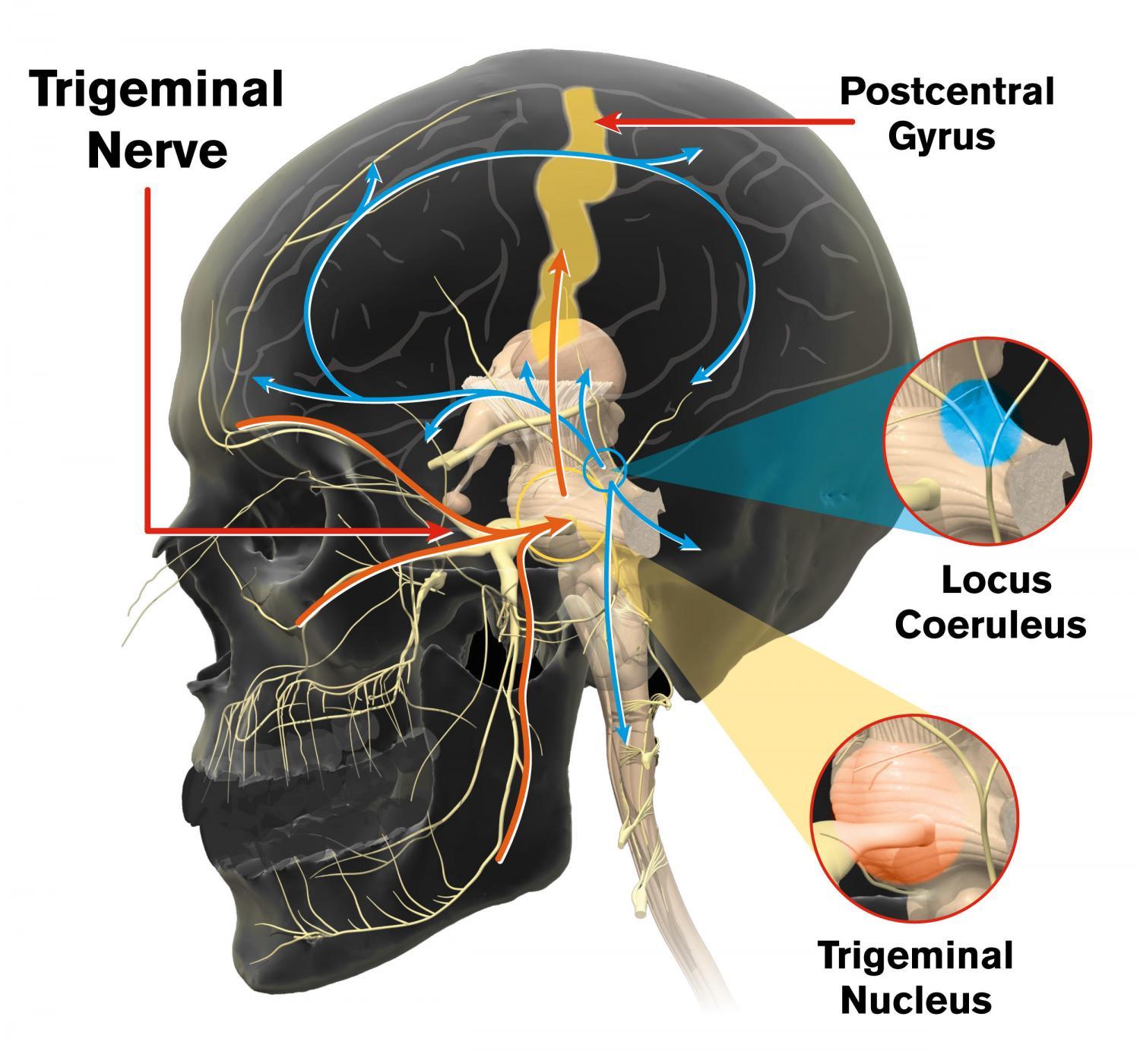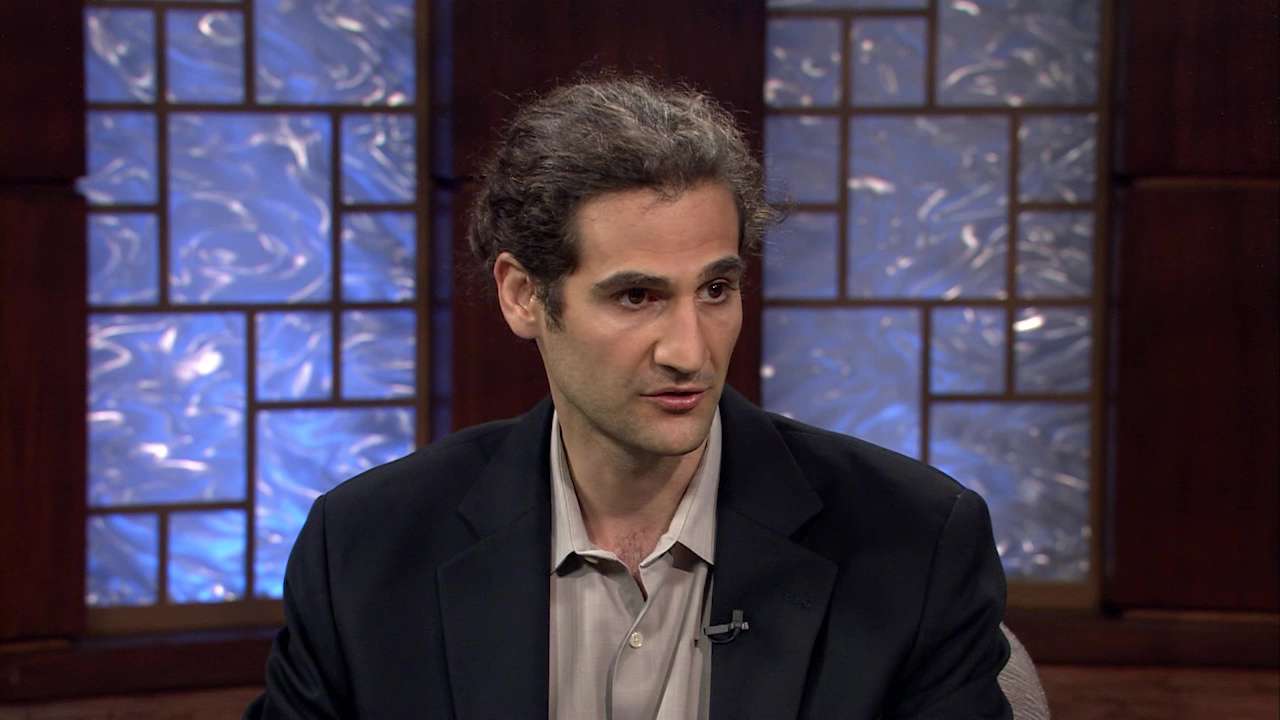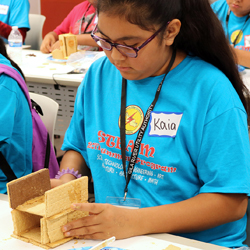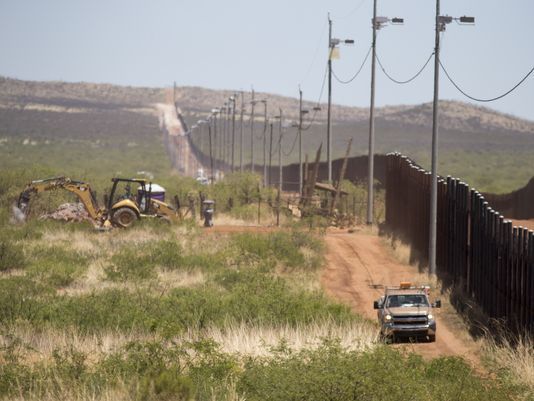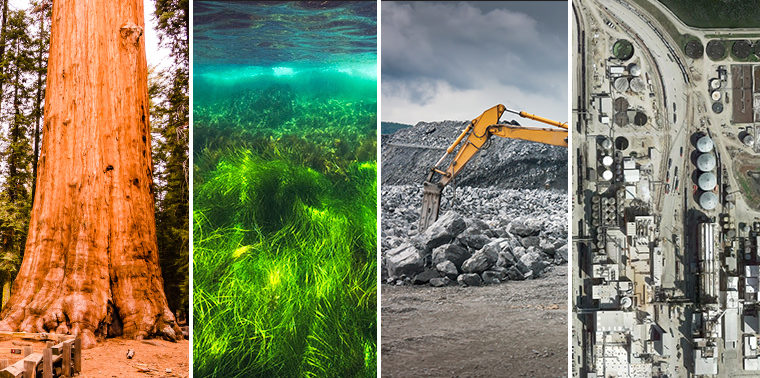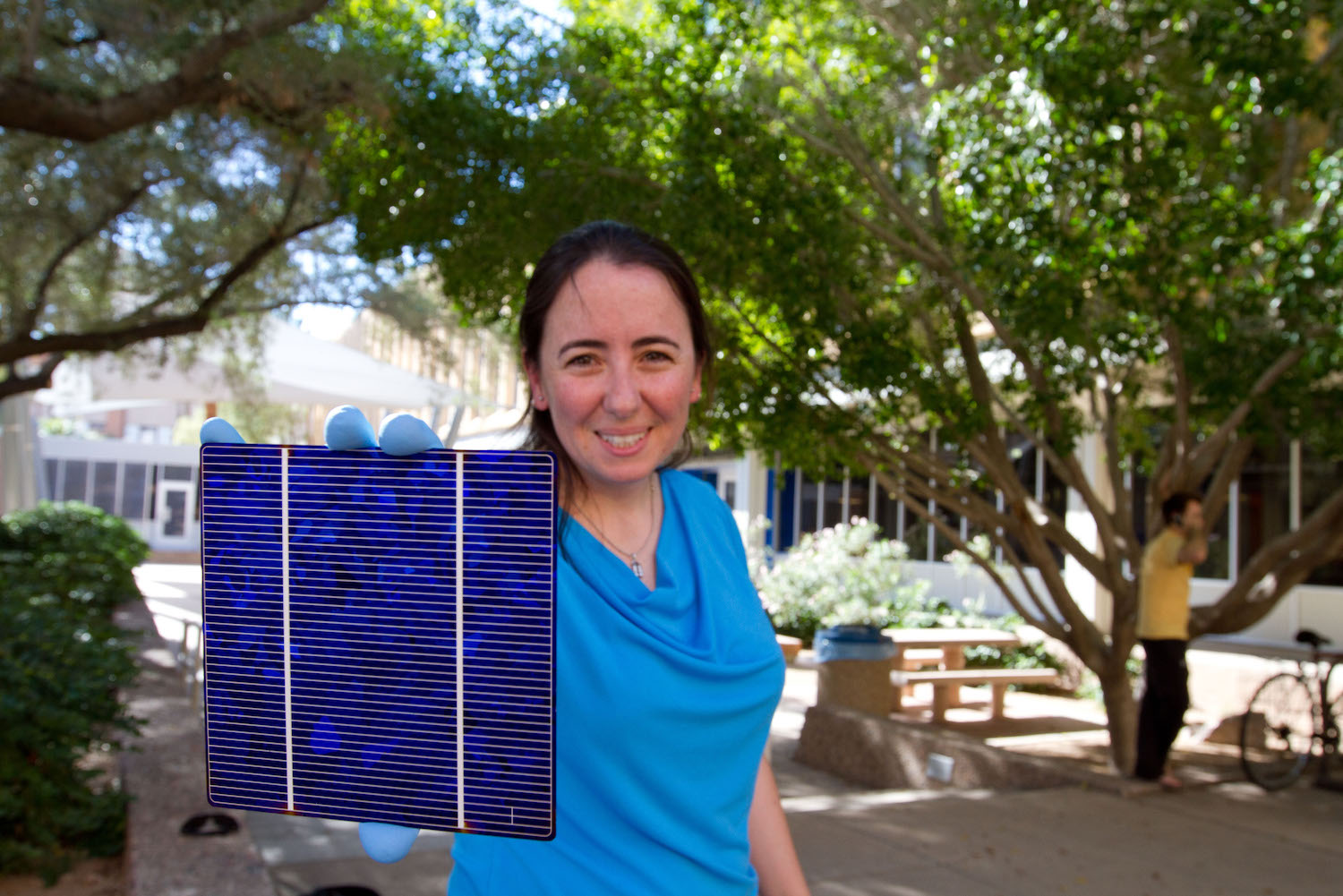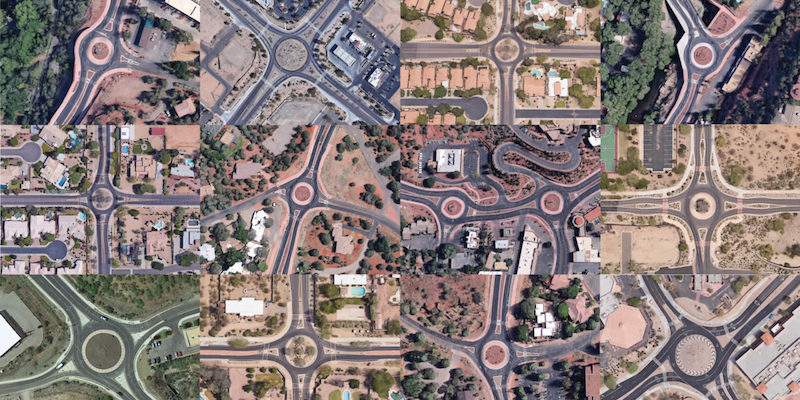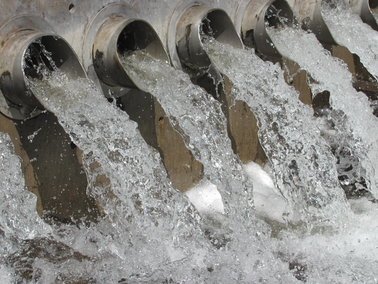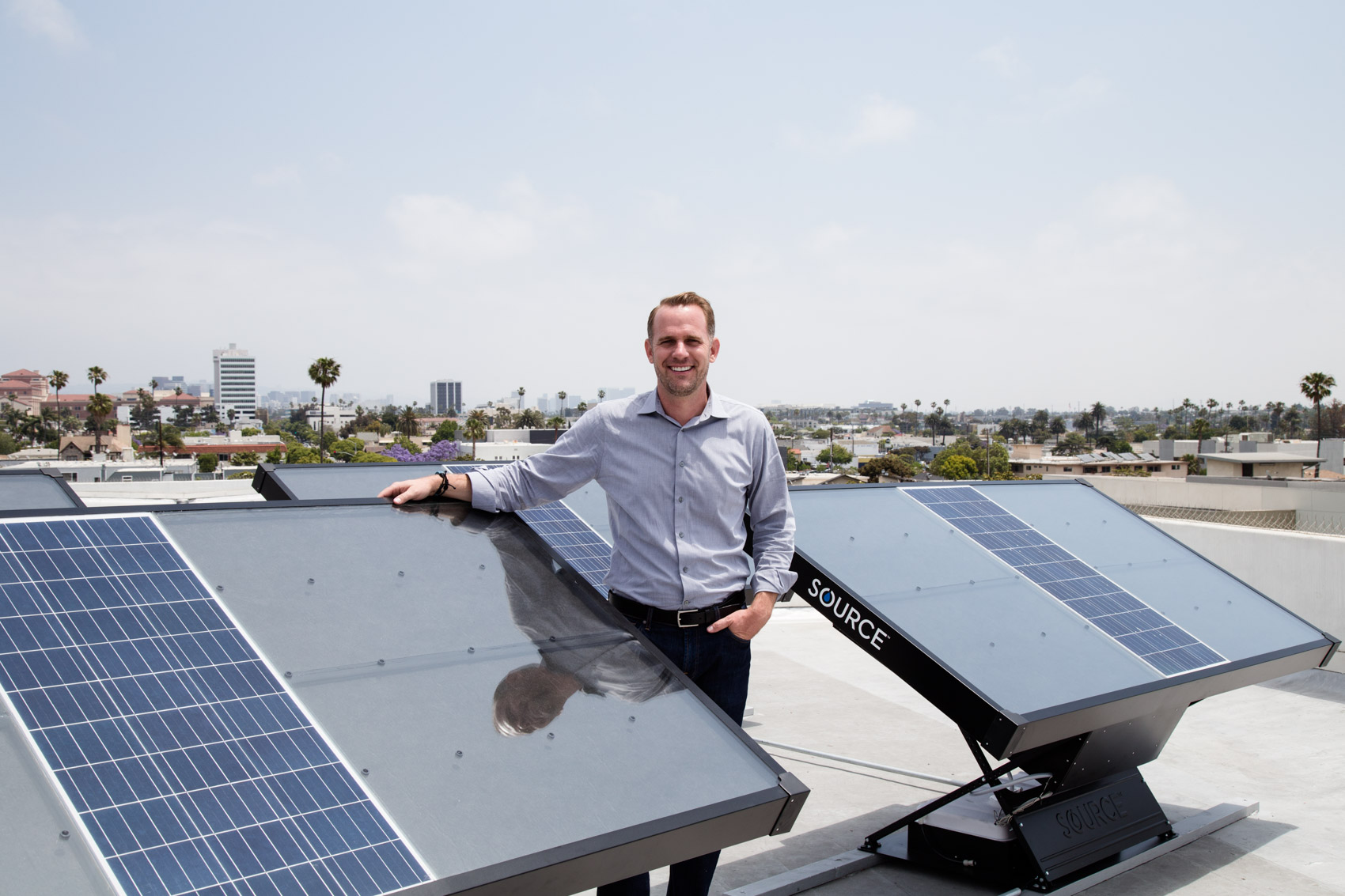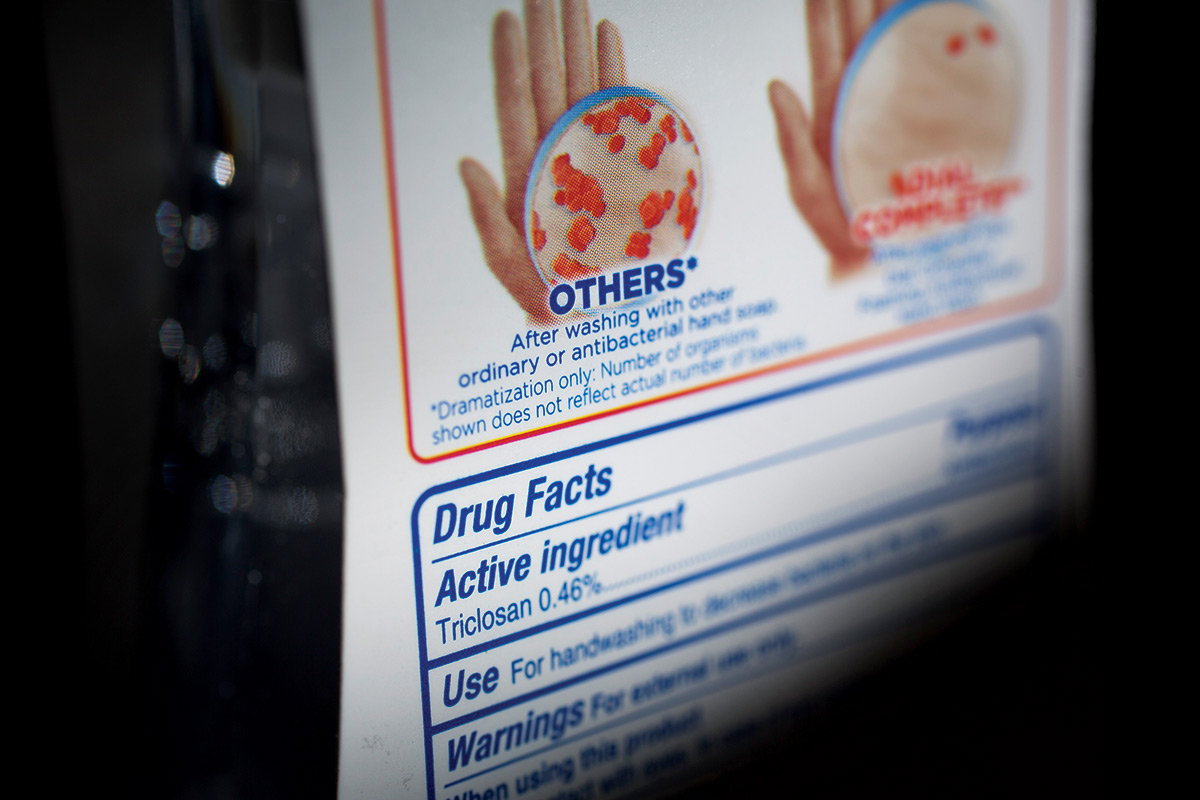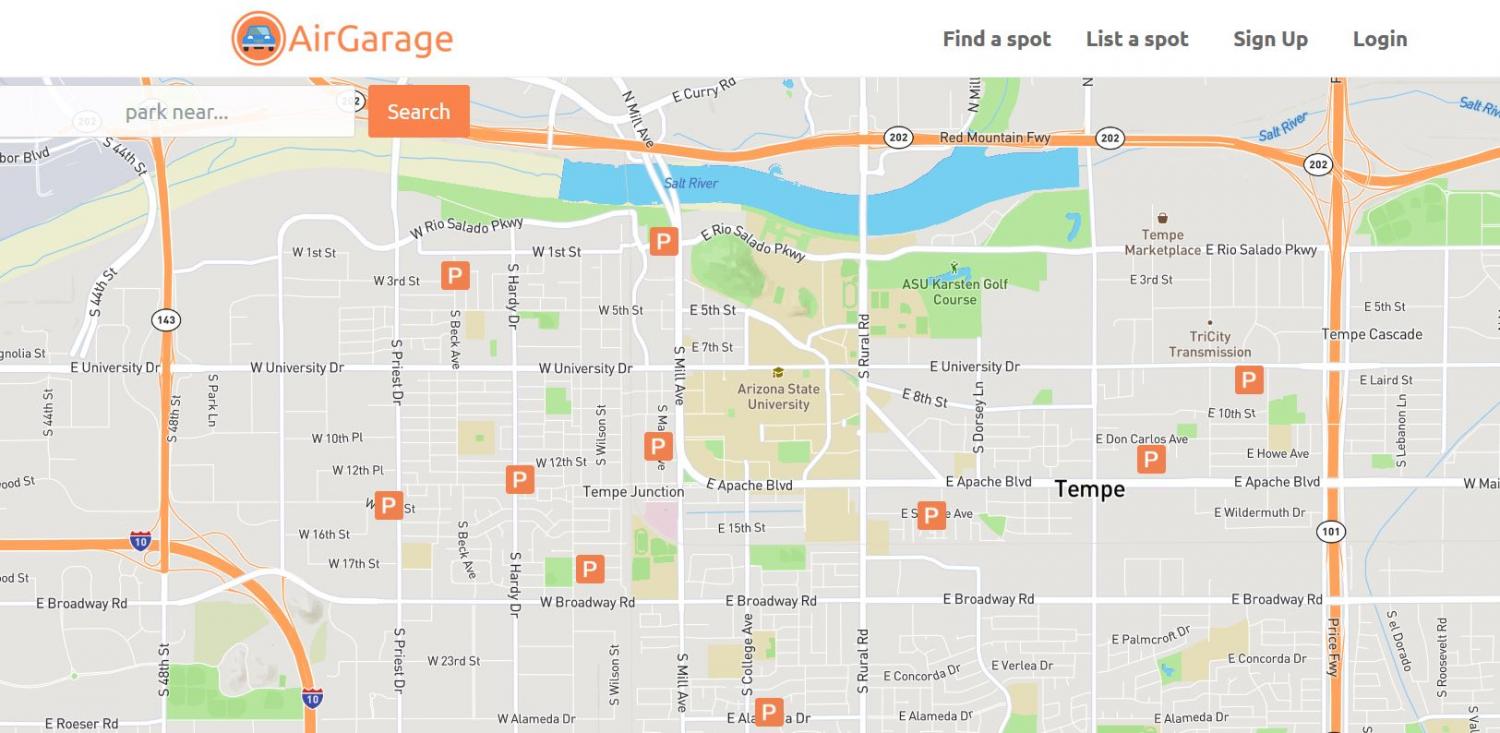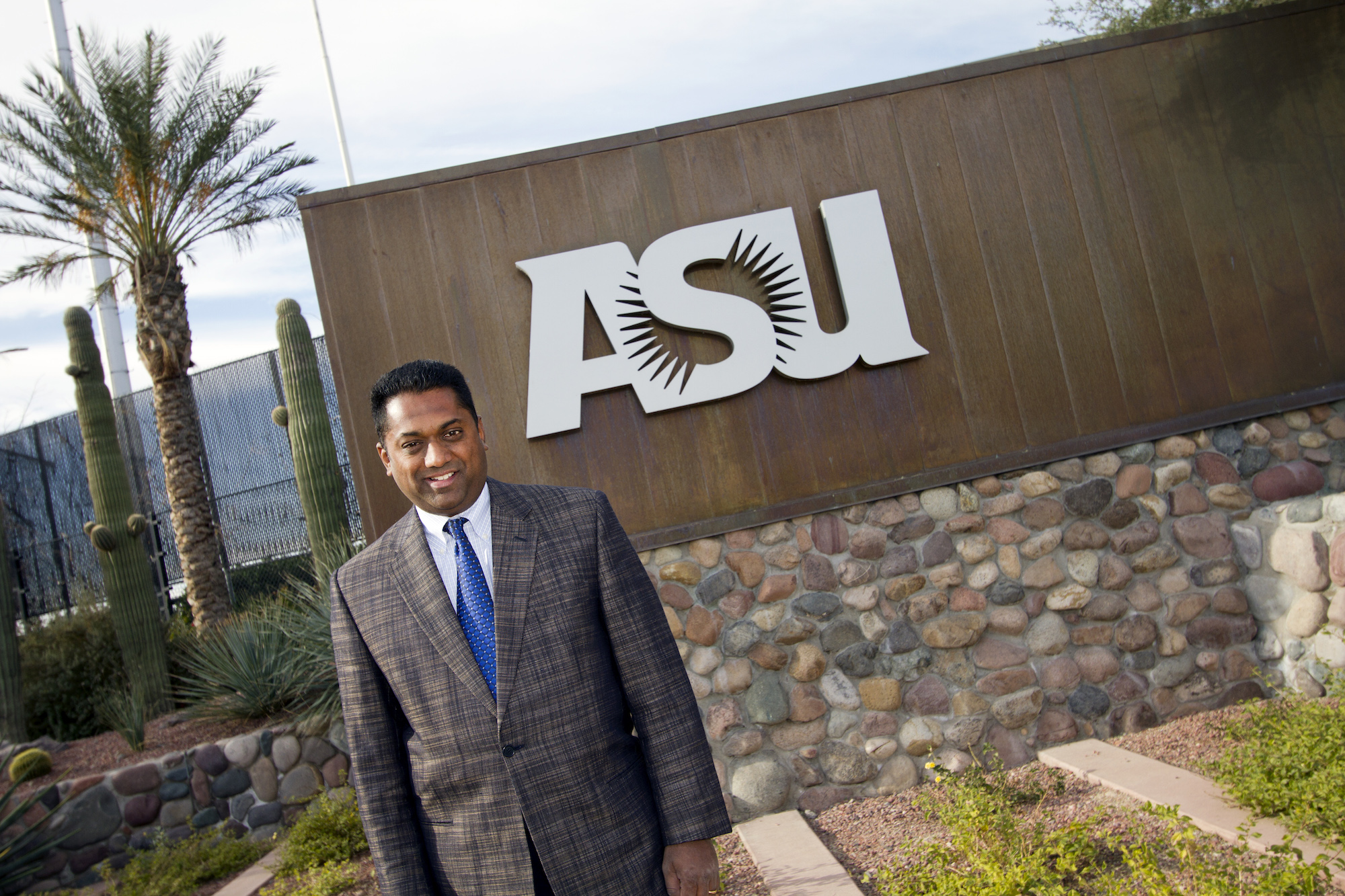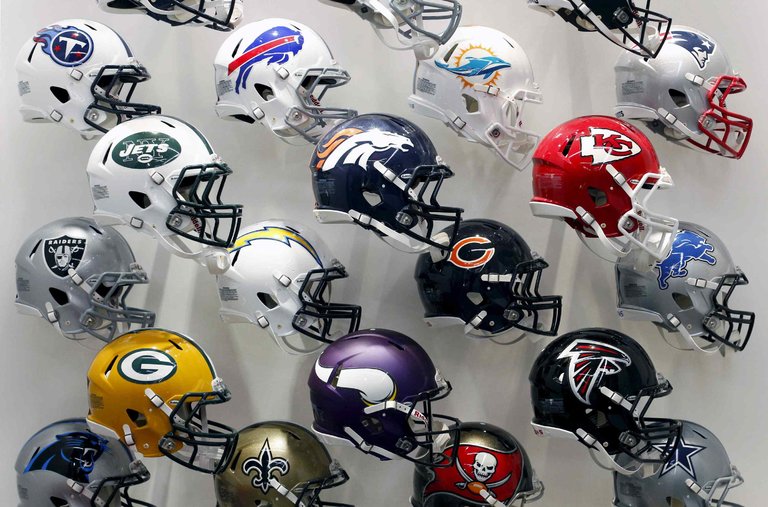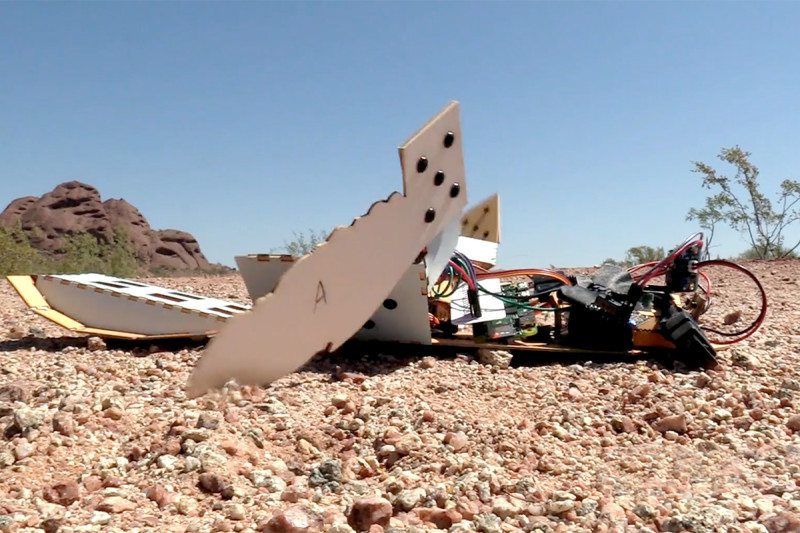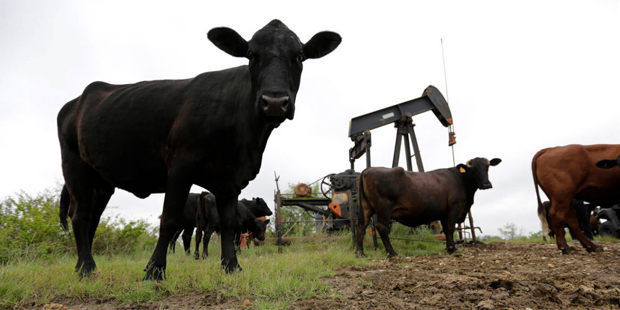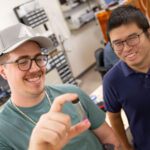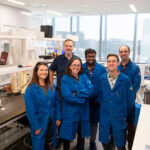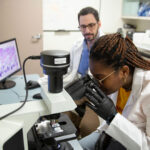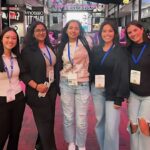
Fulton Schools In the News, page 2
U.S. Department Of Defense Brain Study Seeks To Boost Learning In Soldiers, KJZZ (NPR), July 27
Advances in neuroengineering are creating possibilities for enhancing human learning abilities and cognitive performance. Fulton Schools Associate Professors Stephen Helms Tillery and Chris Buneo explain the “targeted” neuroplasticity research they are conducting with other ASU faculty members to help the U.S. Department of Defense provide more effective training for the nation’s soldiers.
4 Science-Backed Health Benefits of Eating Organic, TIME magazine, July 27
With the organic food market booming, consumers should be equipped with the facts about what organic actually means and doesn’t mean, and what benefits or risks may be involved in producing and consuming organic products. Fulton Schools Professor Rolf Halden, director of the Center for Environmental Security, says even people adhering to strict organic food diets need broader knowledge about nutrition and health to make wiser food choices.
What are urban heat islands? Fox News, July 27
Growing cities must become more aware of the factors that create “urban heat islands” and causes them to intensify. Kamil Kaloush, Fulton Schools associate professor of civil, environmental and sustainable engineering, and director of the National Center of Excellence for SMART Innovations, says making smarter choices about what materials to use in the construction of buildings, roads, parking lots and other civic infrastructure is critical in preventing a rise in ambient heat that makes urban environments not only less comfortable but also less sustainable.
Dark Web Bust, Horizon on KAET-TV Channel 8 (Arizona PBS), Phoenix, July 26
News that two major “Dark Web” Internet sites were shut down by law enforcement agencies made headlines around the world. The “Horizon” news-talk show called on Fulton Schools Entrepreneurial Professor Paulo Shakarian, director of the Cyber-Socio Intelligent Systems Lab, to describe how these secretive and nefarious websites that engage in illegal activities are created and how authorities are learning to combat them.
Building pros share job skills with Gila River students, AZ Big Media, July 24
The School of Sustainable Engineering the Built Environment, one of the six Fulton Schools, teamed up with a major Southwest construction contracting company to give young students from the Gila River Indian Community hands-on lessons in construction and engineering skills, and critical thinking.
Where there’s a will, is there a wall? Building Trump’s border wall won’t be cheap, Arizona Republic, July 24
The massive wall that President Donald Trump proposes to build along the United State-Mexico border would entail more than a significant cost, but also big energy use, environmental safety and construction logistics challenges. Barzin Mobasher, Fulton Schools professor of civil, environmental and sustainable engineering, points to some of the difficulties that could be encountered in developing the infrastructure and obtaining the resources to support the project.
Also See:
Mobasher is quoted in a July 21 Cronkite News report ‘Structurally deficient’ bridge over I-17 repaired using new technology
TO AVOID CLIMATE CATASTROPHE, WE’LL NEED TO REMOVE CO2 FROM THE AIR. HERE’S HOW. Ensia, July 19
One of the more promising systems to stem the negative impacts of climate change by capturing carbon dioxide from the atmosphere is being developed by the research team of physicist Klaus Lackner, Fulton Schools professor of civil, environmental and sustainable engineering and director of ASU’s Center for Negative Carbon Emissions. Lacker tells Ensia, a magazine focusing on solutions to environmental challenges, that such a system theoretically could remove CO2 from the air many times more efficiently than plants.
A.I. Scientists to Elon Musk: Stop Saying Robots Will Kill Us All, Inverse, July 18
Fulton Schools Professor Subbarao Kambhampati, president of the Association for the Advancement of Artificial Intelligence, joined other experts in the field who say prominent inventor and entrepreneur Elon Musk is spreading an overly alarmist message about supposed threats that could someday be posed by advanced AI technology.
Also See:
AI Researchers Disagree With Elon Musk’s Warnings About Artificial Intelligence, Futurism, July 19
Artificial Intelligence Experts Rebut Elon Musk’s Warning and Call for Regulation, The Christian Post, July 20
Elon Musk SLAMMED by top researchers for scaremongering over dangers of AI, Express (United Kingdom), July 20
Sun Devils and solar energy: ASU researchers awarded more than $4 million to develop solar energy solutions, Phoenix Business Journal, July 18
Fulton Schools faculty members Mariana Bertoni, Stuart Bowden, Owen Hildreth, Govindasamy Tamizhmani and Meng Tao are among researchers whose projects to develop innovative and affordable solar power technologies won support from the U.S. Department of Energy SunShot Initiative program — giving ASU more of these research awards than any other university.
Some traffic roundabouts lead to more crashes in Arizona, ABC15 TV News (Phoenix), July 10
Michael Mamlouk’s research has revealed that Arizona’s more than 80 roundabouts mostly increase traffic safety, but the two-lane versions of the circular installations are proving problematic. The Fulton Schools professor of civil engineering recommends how drivers can reduce roundabout risks.
Also See:
Roundabouts on Arizona roads: Helpful or horrible?, Arizona Republic, July 12
Scientists are scrutinizing city sewage to study our health, Popular Science, July 5
What’s flowing into wastewater treatments plants can reveal a treasure trove of information about our health and the health of our environment, says Fulton Schools Professor Rolf Halden. Those findings could help us prevent diseases, pinpoint environmental hazards and track our exposure to chemicals that might be harmful.
Also See:
Studying Wastewater Could Be Messy, But it May Improve Public Health, KJZZ (NPR), July 19
Off-Grid Devices Draw Drinking Water from Dry Air, Scientific American, June 26
The start-up Zero Mass Water, led by Cody Friesen, a Fulton Schools associate professor of materials science and engineering, is selling a solar-based system that doesn’t need to be hooked up to an electric grid or an existing water system to produce water from the atmosphere. The system looks promising for bringing clean water to places that lack it.
Antibacterials in soap should be regulated globally, say experts, New Scientist, June 20
Fulton Schools Professor Rolf Halden is a co-author of a statement signed by more than 200 scientists, researchers and medical experts warning about the potential environmental dangers posed by two antibacterial chemicals now used in consumer products around the world. Halden directs the ASU Biodesign Institute’s Center for Environmental Security.
Also See:
Warning: Your Favorite Antibiotic Soap Could Be Dangerous to Use, Readers Digest, July 7
Scientists Urge Tighter Scrutiny of Germ-Fighting Chemicals, Fair Warning, June 20
Scientists trash antibacterial products, saying they do more harm than good, Consumer Affairs, June 20
ASU Students Create App For Less Painful Parking, KJZZ (NPR) radio, June 7
Fulton Schools computer and science engineering student Scott Fitsimones and ASU physics and economics major Jonathon Barkl have developed a startup venture that connects homeowners who have extra spaces for parking available on their properties with people who will pay to park there. AirGarage is getting off the ground in the Phoenix area, but the students have aspirations of going national.
Repairing Infrastructure from the Ground Up, The Peggy Smedley Show, May 30
Fulton Schools Professor Samuel Ariaratnam was interviewed on a popular weekly podcast that probes into the intertwined subjects of emerging technologies, the Internet of Things and other facets of “the digital life.” Ariaratnam, chair of the construction engineering program, talked about what today’s “smart” cities must do to get even smarter about the use of advanced technologies for rehabilitating their urban infrastructures.
The Earliest Signs of Brain Damage in Athletes? Listen for Them, The New York Times, May 29
Visar Berisha and colleagues at Arizona State University are working to devise a reliable tests to detect when people — including athletes in contact sports — are at risk of brain damage due to injury or various ailments. Berisha is an assistant professor of electrical engineering in the Fulton Schools and of speech and hearing science in ASU’s College of Health Solutions. His tests might also help in assessing the effectiveness of treatments and in detecting and monitoring many neurological disorders.
ASU grad student looks at science of Comicon, CBS-Channel 5 News, May 28
Fans of comic books and the fantasy fiction genre at Comicon in Phoenix got some facts about the validity of the science — or the absence of it — in the fictional worlds of Harry Potter, Batman and the Power Rangers from Fulton Schools biological design doctoral student Alyssa Henning.
Robotic turtles can be used to detect landmines in the desert, New Scientist, May 24
One of the latest and most inventive efforts springing for Heni Ben Amor’s expertise in robot-learning algorithms are small machines whose design is based on sea turtle anatomy and mobility style. The Fulton Schools assistant professor’s “turtle bots,” made from motors, computer chips and cardboard folded in origami style, are being tested on Arizona’s desert terrain to see how they would perform as battlefield landmine detectors.
Also See:
ASU Robotics turns to nature for inspiration, CBS 5 News Phoenix, June 5
An Army of these odd-looking robotics ‘turtles’ might help rid the world of landmines, Digital Trends, May 27
These flat-pack turtlebots will crawl across minefields for safety’s sake, TechCrunch, May 25
These robotic turtles could save your life, New York Post, May 25
Arizona State University students, ADOT team up to create new type of cattle guard, KTAR radio, May 15
A senior-year engineering capstone design project led four recent Fulton Schools graduates to a collaboration with the Arizona Department of Transportation Research Center. The result is a prototype for a new kind of cattle guard using ultrasonic sensors and decoy predator sounds to prevent the grazing animals from stepping into the path of vehicles. Project team members Kevin Davidson and Marissa Rubio recently received degrees in mechanical engineering systems. Hanqing Chen graduated with an electrical systems engineering degree. Zhemin Ne earned a degree in auto systems engineering.
Also See:
ADOT enlists ASU engineering majors to help create new cattle guard concept, ADOT Blog, May 11
East Valley mom and son veterans graduate together as engineers, East Valley Tribune, May 14
U.S. military veterans Barb Blanchard and her son, Rodney Buller, are also now both graduates of the Ira A. Fulton Schools of Engineering — both receiving their degrees at the spring 2017 graduation ceremonies. Buller earned a bachelor’s degree in mechanical engineering systems and is pursuing a master’s degree in electrical engineering. Blanchard’s degree is in operations management.
Arizona team one of two dozen working to make hyperloop travel possible, ABC 15 News-Phoenix, May 9
A multi-university team led by Fulton Schools students is preparing to move from the design stage to prototype testing this summer as it develops a high-speed terrestrial transport pod for the international SpaceX Hyperloop challenge. The team is one of 24 that has made it to the final round of the competition. Mechanical engineering grad student Lynne Nethken (pictured) was interviewed about the AZLoop project.
Arizona State University students finish $80,000 mobile dental clinic for charity, The Arizona Republic, May 9
Engineering Smiles, a student endeavor that began several years ago in a Fulton Schools Engineering Projects in Community Service course, is realizing its goal of providing a mobile dental clinic to underserved communities. Among the project’s leaders (pictured at right) are Sara Mantlik , who just received a master’s degree in mechanical engineering, and Nick Kemme, who is pursuing a similar degree.
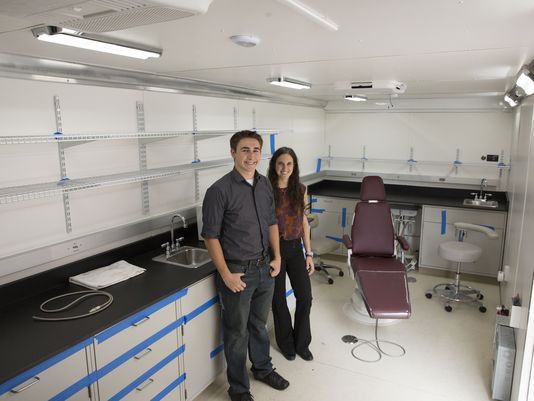
How Russia’s hacking and influence ops help Putin, PRI’s “The World,” May 8
Fulton Schools Professor Brad Allenby comments about the hacking attack on one of the candidates in the French presidential election, speculating on the identity of the perpetrators of the hacking and their political motives. Allenby co-directs ASU’s Weaponized Narrative Initiative, which focuses on examining the uses of technology in misinformation campaigns calculated to influence public perception. Public Radio International’s “The World” is broadcast on more than 300 stations across North America. Read more about the study of weaponized narrative.
How to Keep Clothes from Smelling Bad, Voice of America News, April 30
When people exercise, their bodies sweat and their clothes get wet. And that means their clothes, like their bodies, can smell.
Paul Westerhoff is a professor of Environmental Engineering at Arizona State University. He researched the effectiveness of silver in clothes to kill bacteria and how it impacts the environment. The study was published in Environmental Science & Technology last year.
